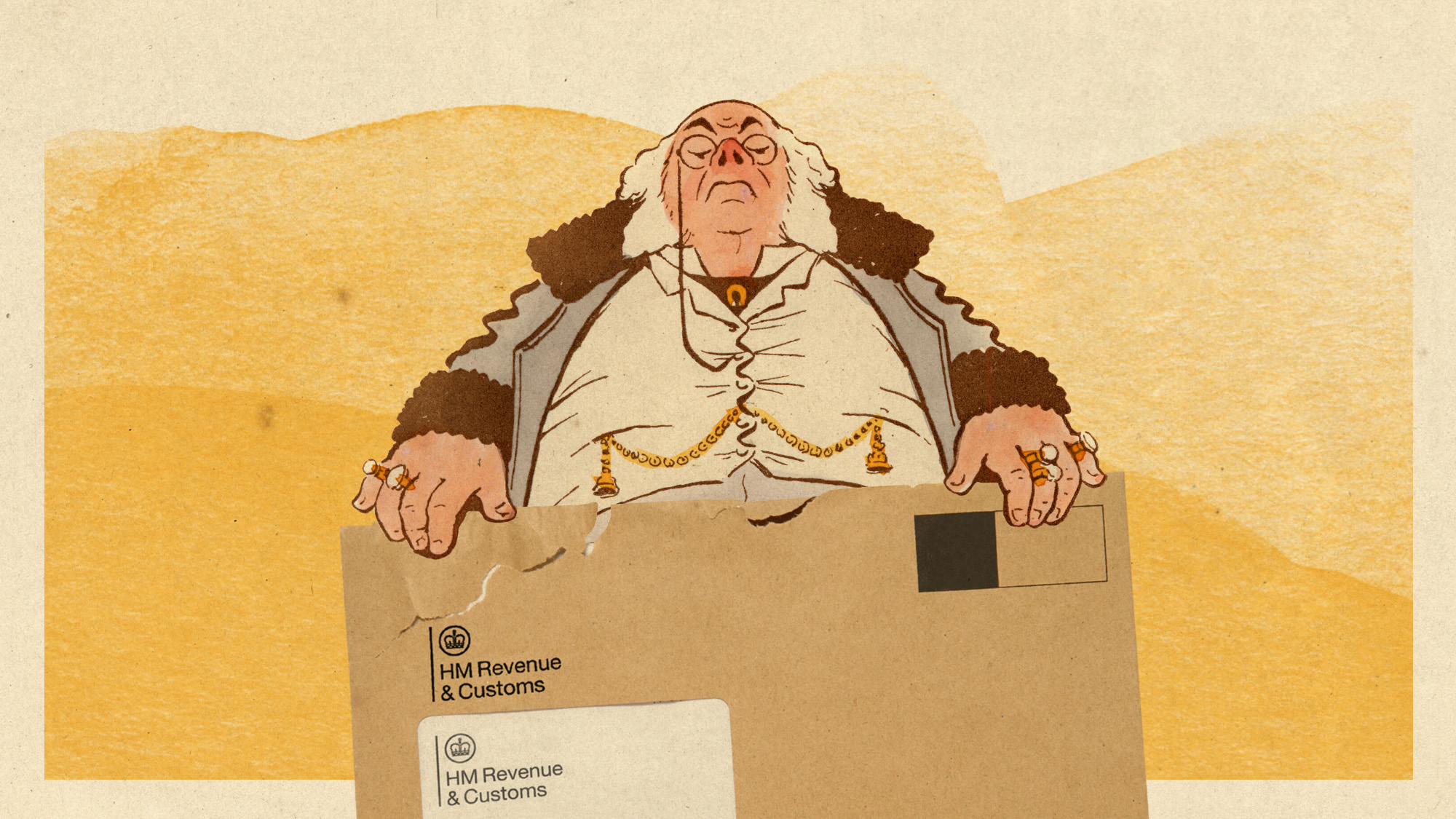The pros and cons of sin taxes
Boris Johnson says he wants to halt the ‘continuing creep of the nanny state’ by abandoning levies on harmful products

A free daily email with the biggest news stories of the day – and the best features from TheWeek.com
You are now subscribed
Your newsletter sign-up was successful
Tory leadership race front-runner Boris Johnson has pledged to conduct a full review of so-called “sin taxes” amid concerns that they “clobber those who can least afford it”.
Sin taxes are loosely defined as sales taxes on goods that are deemed to have harmful effects on societies or individuals. These include products such as alcohol, tobacco and sugar, but also apply to activities such as gambling and pornography use.
Johnson’s promise to review these taxes if he becomes prime minister appears to directly undermine one of his most prominent supporters, Health Secretary Matt Hancock. He is due to publish a green paper in the coming days advocating extending the sugar tax to milkshakes.
The Week
Escape your echo chamber. Get the facts behind the news, plus analysis from multiple perspectives.

Sign up for The Week's Free Newsletters
From our morning news briefing to a weekly Good News Newsletter, get the best of The Week delivered directly to your inbox.
From our morning news briefing to a weekly Good News Newsletter, get the best of The Week delivered directly to your inbox.
Johnson says that he will halt the roll-out of further levies until the conclusion of a “comprehensive review” into their effectiveness, Sky News reports.
The former foreign secretary suggested that to tackle health crises such as obesity, the Government should encourage people to do more exercise rather than tax goods they consume.
“Rather than just taxing people more, we should look at how effective the so-called sin taxes really are, and if they actually change behaviour,” Johnson said. “The recent proposal for a tax on milkshakes seems to me to clobber those who can least afford it.
“If we want people to lose weight and live healthier lifestyles, we should encourage people to walk, cycle and generally do more exercise,” he added.
A free daily email with the biggest news stories of the day – and the best features from TheWeek.com
Sin taxes have been a controversial topic in the UK for years. To some, levies on unhealthy goods help lessen the effects of health crises and raise public awareness of the benefits of living more healthily. To others, they are a paragon of the dreaded “nanny state” in which individual liberties are usurped by the will of the Government.
Here are the pros and cons of sin taxes:
Pros
They lessen the impact of health crises
The aim of sin taxes is mainly to alleviate major health crises in the UK - most notably obesity.
One of the most prominent sin taxes is the so-called “sugar tax”, which came into into force in April 2018 in an attempt to drive down consumption of sugary food. England’s chief medical officer, Professor Dame Sally Davies, has been a staunch supporter of this approach and has proposed taxing all unhealthy foods to tackle childhood obesity by discouraging parents from buying them.
BT News reports that the sugar tax “has been celebrated by the Treasury for shrinking the amount of sugar in the national diet by 45 million kg” in the year since its introduction and “for raising millions in sports funding”.
But Johnson appears to have dismissed this progress, as demonstrated by his decision to announce a sin tax review on the same day that Cancer Research UK said obesity causes more cases of some cancers than cigarettes.
Royal Society for Public Health (RSPH) chief executive Shirley Cramer said the organisation was “seriously disappointed” by the announcement, saying “evidence shows that the sugar levy has worked”.
Cancer Research UK chief executive Michelle Mitchell also praised the successes of sin taxes, claiming they have “been highly effective in bringing down smoking rates to record lows, including within deprived communities”, she said.
The Obesity Health Alliance’s Caroline Cerny said voluntary programmes for the food industry to cut sugar “have not had the same success” as taxation.
They raise awareness
Rather than pricing people out of buying unhealthy food, the news coverage and word-of-mouth provoked by such a tax may cause people to consider their options more keenly.
Many pundits have noted that Johnson’s latest proposal to win over Conservative voters sits directly at odds with his introduction of a levy on sugary soft drinks at City Hall in 2016 when he was London mayor.
The Mirror reports that when announcing the tax, he stated that such a levy would bring these health issues more sharply into focus, declaring: “I hope this initiative will allow us to raise awareness of the problem and encourage people to think about their diets.”
They create revenue
It goes without saying that taxes raise money for the Treasury, but for an example of how effectively they gather revenue, we need look no further than the sugar tax.
A government report in November 2018 showed that in the seven months since its introduction in April of the same year, soft drinks manufacturers and traders had paid an extra £153.8 million in tax.
The report adds that this funding has been allocated to a number of programmes to support the health and well-being of young people. This includes doubling funding for the primary physical education and Sport Premium to £320 million a year from 2017 and providing £100 million in 2018/19 for the Healthy Pupils Capital Fund.
They prompt private companies to be more responsible
To some, sin taxes should not be used to price consumers out of unhealthy food, but should instead prompt food producers to change their recipes to fall under the threshold for higher taxation, thus making their products healthier.
Robert Jenrick MP, a Treasury minister and Johnson ally, was quoted in the government report last November as hailing the “positive impact the soft drinks levy is having” by “encouraging manufacturers to cut sugar in over half the drinks found in UK stores”.
Cons
They are emblematic of the nanny state
When Johnson’s proposal to review sin taxes was announced, he justified the move by claiming it was “time to take a proper look at the continuing creep of the nanny state and the impact it has on hardworking families across Britain”, the Telegraph reports.
The BBC says that shortly after the announcement, Matt Hancock parroted Johnson’s approach by backing down on his pledge to increase the levy on sugar and admitting there were “more ways” to tackle obesity outside taxation that can work “without the need of the nanny state”.
A nanny state is defined by the Cambridge Dictionary as a government that “tries to give too much advice or make too many laws about how people should live their lives, especially about eating, smoking, or drinking alcohol”. Users of the term often complain that government will is usurping the freedom of individuals to make their own choices about their lifestyles.
Norman Smith, the BBC’s assistant political editor, writes that “talk of ‘standing up to the nanny state’ probably goes down well with the Tory members”, but not everyone is convinced that this is doable.
Asa Bennett, writing in The Daily Telegraph, suggests that in order to implement a full-scale review and backtrack on sin taxes, Johnson will “need a Chancellor who shares his determination to cut back on the nanny state” - a scenario that will need him to sideline Hancock, whom the paper suggests was in the running to be his chancellor.
They are regressive
Sin taxes are “regressive in nature”, according to the Corporate Finance Institute, and thus “discriminate against the poorer classes by placing the bigger financial burden on them relative to the burden placed on wealthier people”.
The Institute of Economic Affairs agrees, stating that there should be “no debate about whether taxes on food, alcohol, tobacco and soft drinks are regressive”, and argues that they “can cost poor families up to ten times more than they cost the wealthy”.
The institute also notes that advocates for sin taxes often “claim that they produce health benefits that are progressive, i.e. they disproportionately benefit the poor”, but points to the vast increases on tax on tobacco and alcohol, which are still used disproportionately by poorer communities despite the high rate of taxation.
They may not actually work in the long term
According to Prospect magazine, the public health case for a sugar tax “hinges on a chain of assumptions”, including the belief that taxing high-sugar drinks will “stunt sales, which in turn will lead to lower calorie consumption, and, finally, to lower levels of obesity (and better oral health)”.
“Yet these assumptions break down very quickly if consumers behave even slightly differently to the way government intends,” it adds.
It points to the so-called “fat tax” implemented by the Danish government in 2011, when foods with a saturated fat content above 2.3% were taxed. The policy was eventually abandoned after just 15 months, when its “unintended consequences became too blatant to ignore”. Many Danes “absorbed the costs by making savings elsewhere in their budgets or buying cheaper versions of the same fatty products”.
FoodDrinkTax.eu, a campaign group attempting to discourage the use of sin taxes around Europe, agrees. It claims that the Danish episode demonstrates that the “demand for sugary drinks, snacks and fatty foods is inelastic”, and that “evidence demonstrates that most people will not change their food shopping habits unless prices change dramatically”.
-
 How to Get to Heaven from Belfast: a ‘highly entertaining ride’
How to Get to Heaven from Belfast: a ‘highly entertaining ride’The Week Recommends Mystery-comedy from the creator of Derry Girls should be ‘your new binge-watch’
-
 The 8 best TV shows of the 1960s
The 8 best TV shows of the 1960sThe standout shows of this decade take viewers from outer space to the Wild West
-
 Microdramas are booming
Microdramas are boomingUnder the radar Scroll to watch a whole movie
-
 Autumn Budget: will Rachel Reeves raid the rich?
Autumn Budget: will Rachel Reeves raid the rich?Talking Point To fill Britain’s financial black hole, the Chancellor will have to consider everything – except an income tax rise
-
 Pros and cons of a wealth tax
Pros and cons of a wealth taxPros and Cons Raising revenue and tackling inequality vs. the risk of capital flight and reduced competitiveness
-
 Is Rachel Reeves going soft on non-doms?
Is Rachel Reeves going soft on non-doms?Today's Big Question Chancellor is reportedly considering reversing controversial 40% inheritance tax on global assets of non-doms, after allegations of 'exodus' of rich people
-
 Foreigners in Spain facing a 100% tax on homes as the country battles a housing crisis
Foreigners in Spain facing a 100% tax on homes as the country battles a housing crisisUnder the Radar The goal is to provide 'more housing, better regulation and greater aid,' said Spain's prime minister
-
 What's next for electric vehicles under Trump?
What's next for electric vehicles under Trump?Today's Big Question And what does that mean for Tesla's Elon Musk?
-
 The row over UK maternity pay
The row over UK maternity payTalking Points Tory leadership hopeful Kemi Badenoch implied that taxpayer-funded benefit was 'excessive' and called for 'greater responsibility'
-
 Will the UK economy bounce back in 2024?
Will the UK economy bounce back in 2024?Today's Big Question Fears of recession follow warning that the West is 'sleepwalking into economic catastrophe'
-
 America's most in-demand job
America's most in-demand jobFeature And more of the week's best financial insight